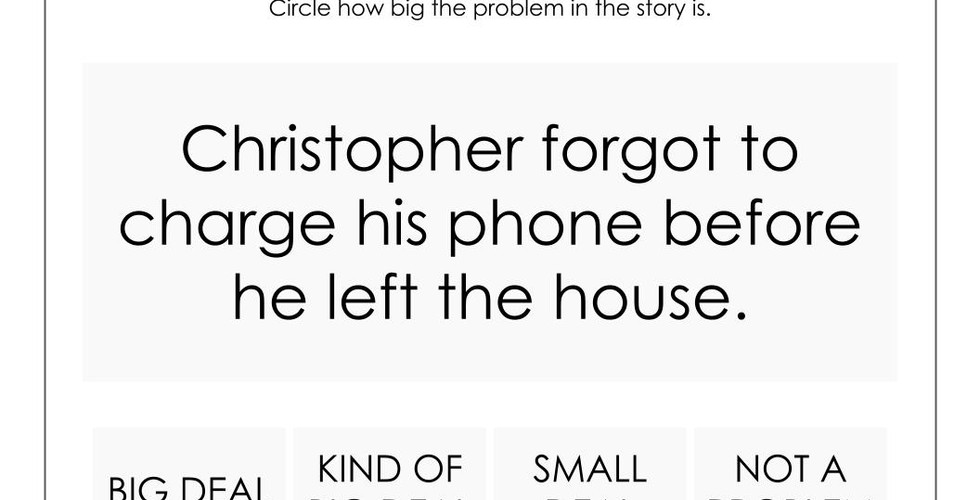We all have feelings. They help guide us through life and add value to life's experiences. We all want to feel happy emotions but at times we may feel a variety of emotions from sadness to worry. At times extreme emotions such as anger will drive one to resolve that feeling even if it means causing harm. Feelings of sadness can leave a person withdrawn from others and feelings of worry can leave a person paralyzed with fear. Many children with autism have difficulty with expressing and identifying their emotions. Children with emotional disturbance disorder may have a difficult time regulating their emotions. We have charts that will support with emotion identification and ease the communication process for the individual experiencing the emotion, as well as, act as a support for parents or other stakeholders to properly identify emotional states. For these charts and more search for "emotions" at https://www.educatelearners.com/worksheets.

Solutions
Seek help: Extreme, consistent and not easily resolved emotional states that cause stress and impede in functioning properly in life may require the need for additional support. This may be in the form of a mental health therapist or behavior therapist to provide strategies and support to address emotional regulation.
Talk to a friend: Talking to someone who can listen and provide an objective perspective can be a great support mechanism. It's important that every person has someone in their corner who knows them, understands them and provides them with support.
Take your mind off of it: At times it's difficult to stop thinking about something that was the catalyst to a certain emotion. However, thinking about it constantly is not productive and does not help the person move past the issue. Doing things they enjoy or that are constructive activities can fade away the negative thoughts over time and replace them with more purposeful thoughts.
Confront the issue: Running away from an issue may often keep a person trapped in it emotionally because the core issue has not been resolved. Often confronting the true source of the anger or sadness will help with healing.
Gain perspective: It's important to know if one is overreacting or being controlling in a situation. At times a person may feel they are being treated unfairly. If someone is being treated unfairly it should be addressed. However, there are other times when the scenario is not unfair but is one in which someone doesn't like something that occurred and want things to go their way even if they are wrong or it doesn't truly benefit anyone. It's important to look at a situation and choose to do the right thing as opposed to what might be the most self-serving. Often self-serving behavior waste time and is inconvenient for processes to take place to move forward with a task. Taking the time to gain perspective and understand the brevity of the issue can often lead to emotional resolution and a more constructive resolution for any involved parties. We've added 50 worksheets that review if a problem is a big deal, kind of big deal, small deal or not a problem. Have your learner read and practice identifying how big of a deal the scenario is.







Comments